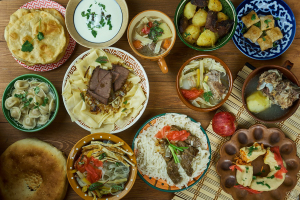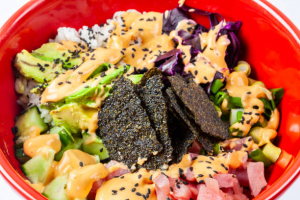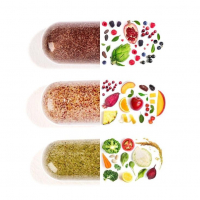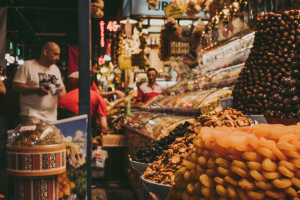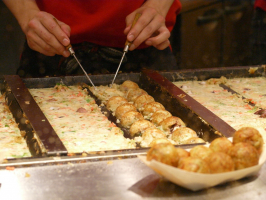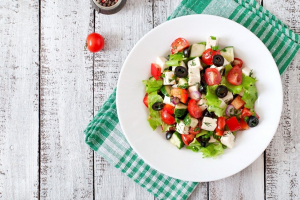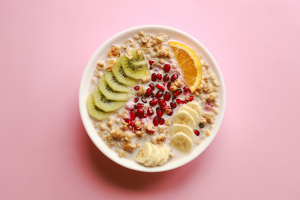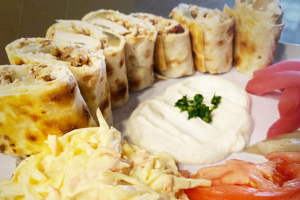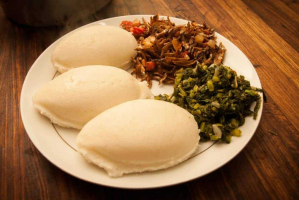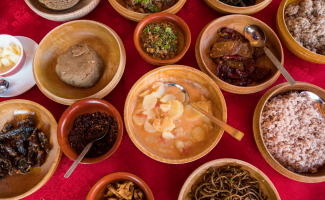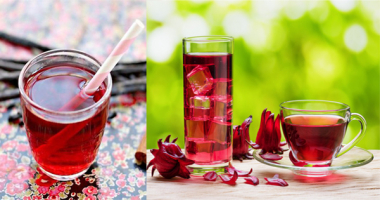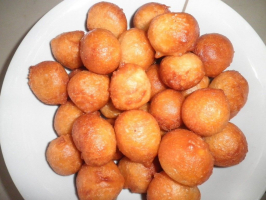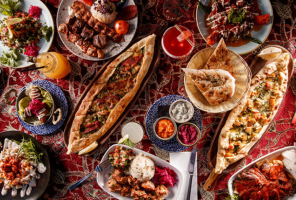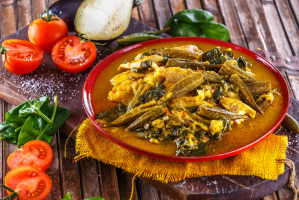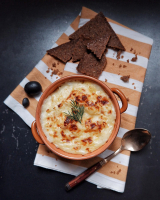Top 15 Best Paraguayan Foods
One of the best things about this Latin American country is its cuisine. Aside from football, great hospitality, beautiful landscape, and an impressive navy ... read more...(for a landlocked country), Paraguay's flavorful and delicious cuisine will make your time worthwhile. If you're planning a trip to Paraguay and want to get a taste of the local cuisine, Toplist hopes our list of the Top 15 greatest Paraguayan cuisines will point you in the right direction.
-
Perhaps you've heard of the corn tortilla, which is popular throughout Latin America. It's the same trend in Paraguay, but the locals have other Tortilla varieties up their sleeves.
Tortilla Paraguaya, or Paraguayan Tortilla, can also be made with all-purpose flour or mashed yuca instead of cornmeal (cassava). Before being divided into flat circles and fried in oil, the dough is mixed with eggs, onions, milk, or Paraguayan cheese.
Tortilla Paraguaya is typically served as a savory side dish to accompany other dishes. It is an essential component of many Paraguayan breakfast recipes. However, many people add ground meat (usually beef) to the batter, transforming the Tortilla into a filling snack in its own right.
Try this dish at least once if you plan a trip to Paraguay in the future. Your trip will not be complete unless you try this dish. Many visitors are pleasantly surprised by its distinct flavor and report having a pleasant experience with it.
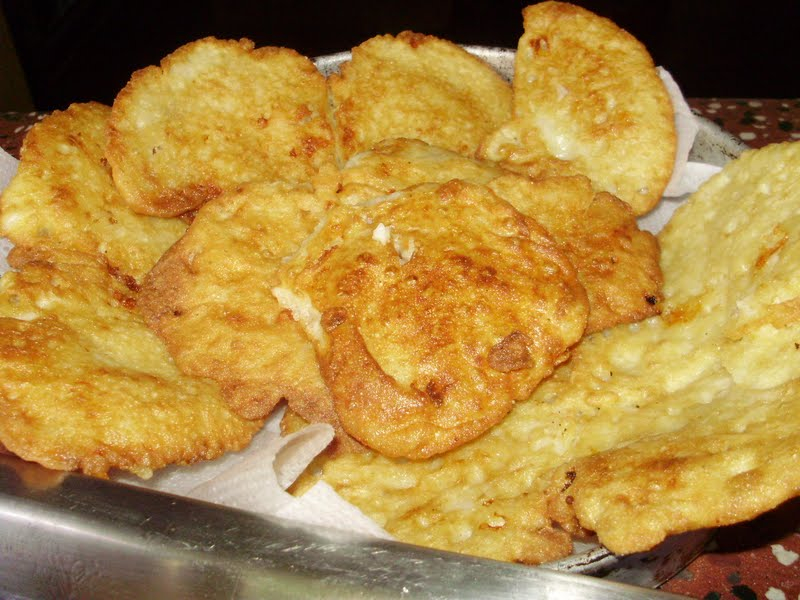
tembiuparaguay.com 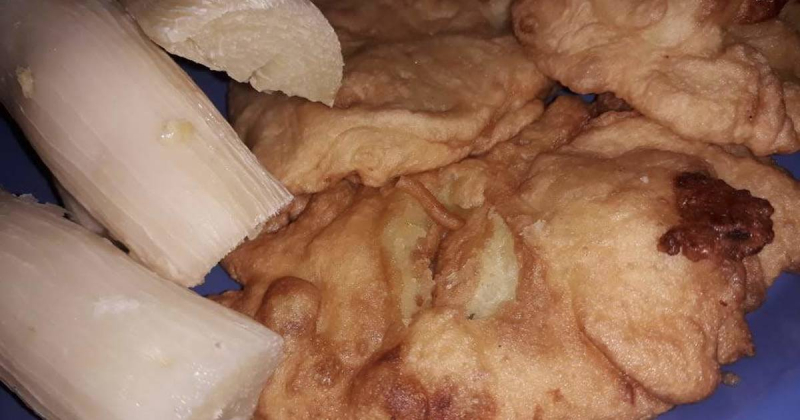
cookpad.com -
There are two things you should know about Sopa Paraguaya, which translates as "Paraguayan Soup" in Spanish. First and foremost, it is not a soup, but rather a spongy cake. Second, it is Paraguay's national dish and possibly one of the country's oldest culinary inventions.
The dish was apparently created by the Guaraní people, the original inhabitants of what is now Paraguay. When the Spanish colonists arrived, they brought cheese, milk, and eggs to add to the cake. Later generations enhanced the recipe by adding pork fat, onions, and cream.
Meanwhile, another origin story has it that the dish was accidentally invented by a cook for Paraguay's first president. Whatever the case may be, Paraguayans have inherited a delicious, protein-rich cake. In festivals or special occasions, it is served with (real) soup, meat stews, or Tortillas.
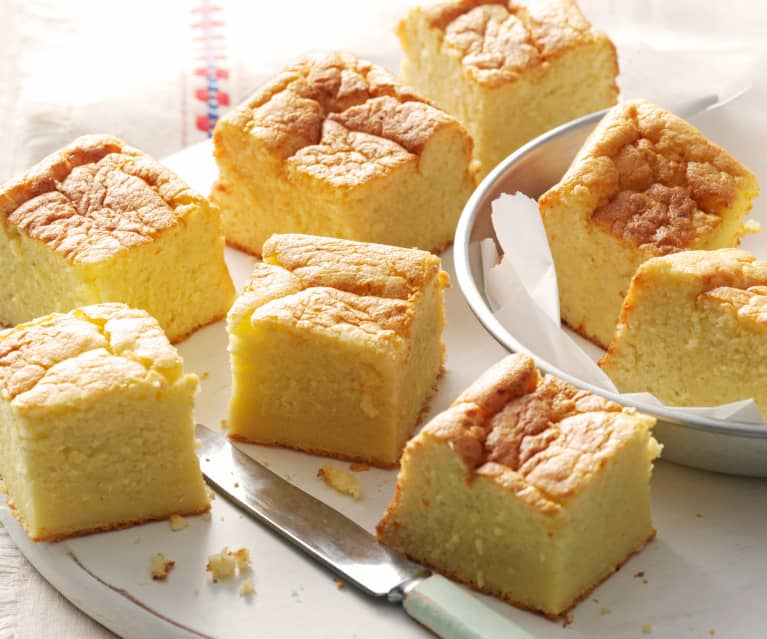
cookidoo.com.cn 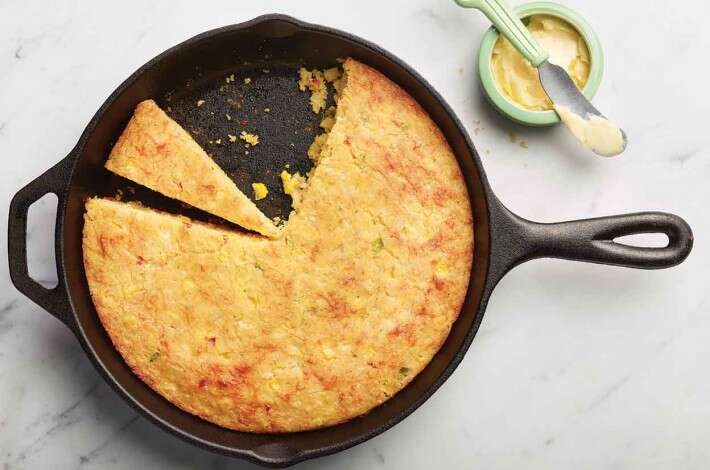
kingarthurbaking.com -
Unlike many neighboring countries, where the entire population is descended from former colonists, Paraguay retains its indigenous identity. The traditional soup Soyo is a symbol of that heritage. The name is a shortened version of the indigenous Guaraní phrase "so'o josopy," which means "crushed meat."
That name tells you everything you need to know about how to make the soup. People essentially crush meat in a mortar and then cook it in a pot with cold water, rice, spices, and vegetables to make a thick, nourishing soup.
At least, that's how it's supposed to be now. Soyo used to be less flavorful, and it was mostly consumed by the poor. Nowadays, however, both rich and poor Paraguayans enjoy this originally native dish.
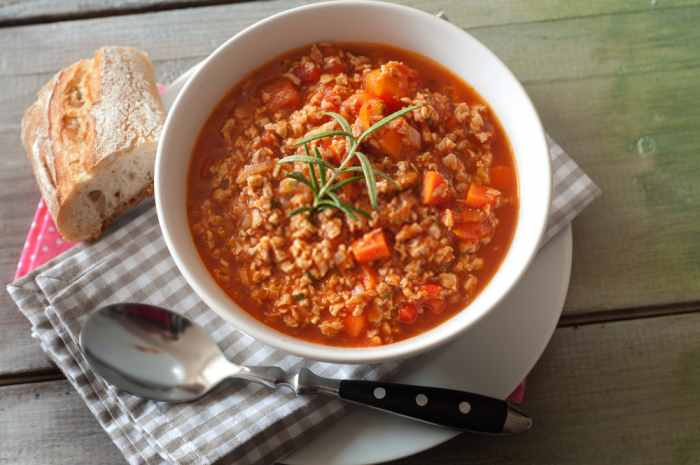
comidasparaguayas.com 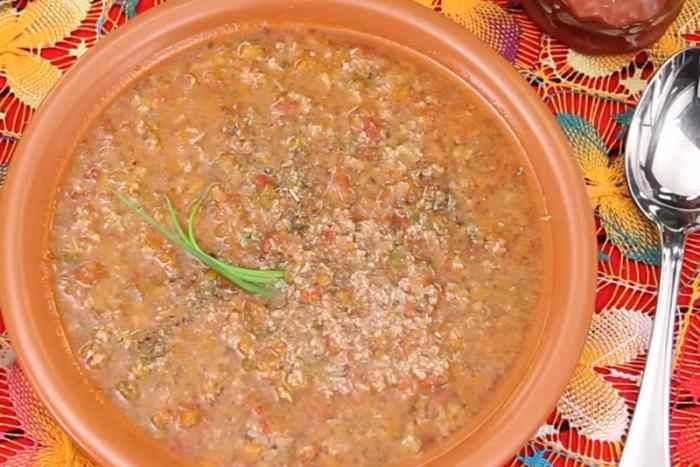
pinterest.es -
Chipa, or Paraguayan corn cake, is an unusual case. It looks and sounds like a cake, but it can also be a side dish or a full meal at any time of day. Chipa Guasu, which means "big Chipa" in Spanish, is the most common type of Chipa.
Fresh corn kernels or cornmeal, onions, sugar, spices, and milk or Paraguayan cheese are used to make it (higher in calories and proteins than normal cheese). They are combined into a batter, which is then baked until golden and fragrant.
Chipa Guasu is high in calories and nutrients. That is not by chance, as it was designed to aid people in surviving a period of prolonged warfare and food scarcity. However, it is now considered a must-have dish for harvest festivals and holidays.
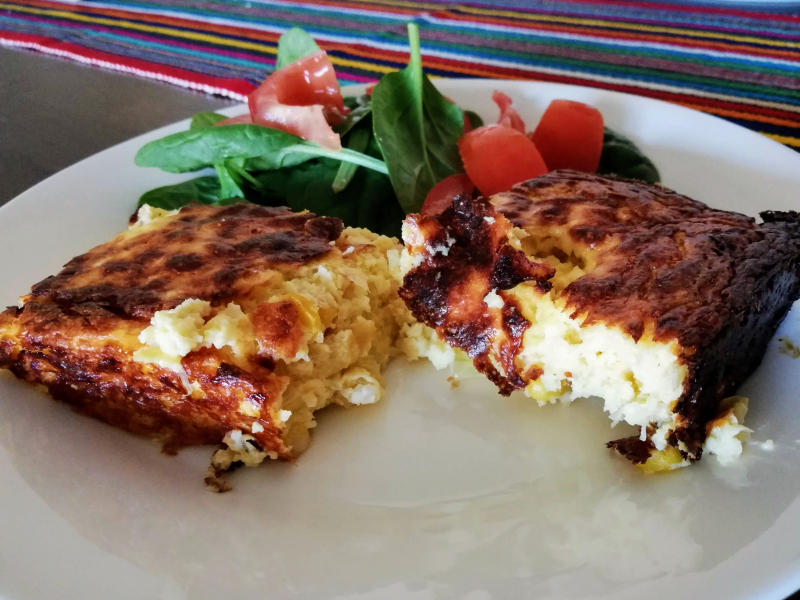
en.wikipedia.org 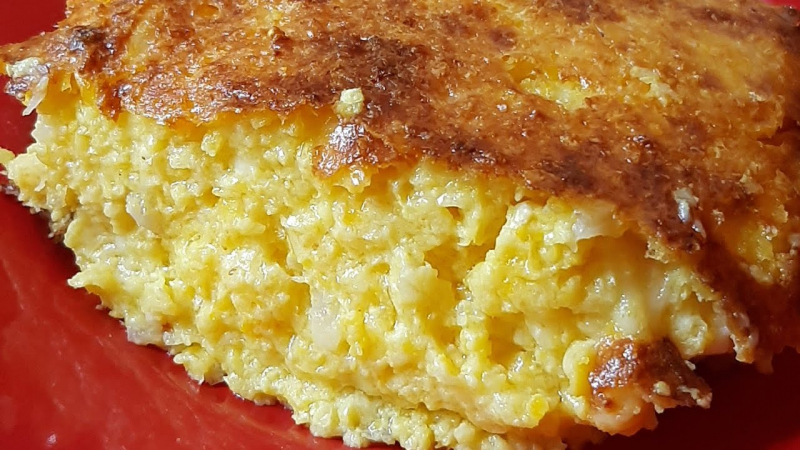
bestrecipes.co.in -
Chipa Guasu is delicious, but it's quite large and heavy. If you're looking for a cuter and more compact version of Chipa, consider Chipa Almidón, also known as "starch Chippa" in Spanish.
Chipa Almidón is made from the same ingredients as Chipa Guasu in Paraguay. However, anise seeds are added, and corn grains are replaced with yuca flour (hence the "starch" part). Also, rather than baking the entire batter, people divide the dough into many smaller shapes.
Chipa Almidón is a popular Paraguayan street food that can be eaten alone or with a variety of main dishes. Another type of Chipa Asador involves roasting a piece of yuca dough on a stick over an open fire.
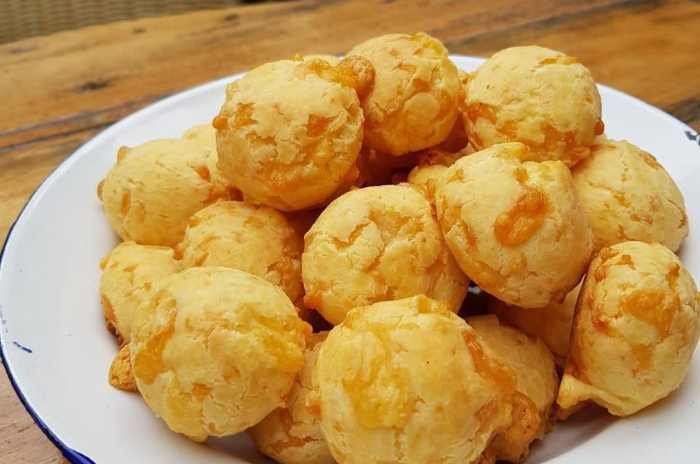
comidasparaguayas.com 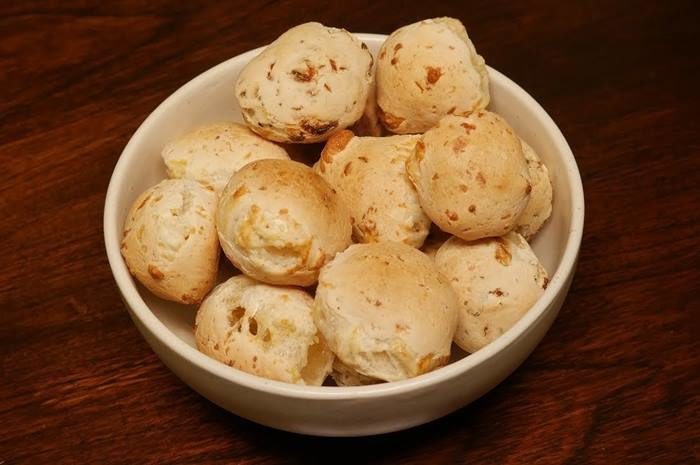
recetasyuca.com -
The empanada, which translates as "coated in bread," is a symbol of Spanish cuisine. When Spain established dominions throughout Latin America, it also became a popular dish in those countries. Empanadas are now a staple of Paraguayan cuisine.
The "Empanada de Carne," a crescent moon-shaped turnover with two slices of deep-fried bread and fried or shredded beef, vegetables, and spices in between, is perhaps the most popular variety in the country.
It is a popular dish sold in many Paraguayan restaurants and food stalls. You can discover what it's like to eat an empanada in Asunción, Paraguay's capital. Lots of travelers highly recommended this dish as one of the Paraguayan must-try foods.
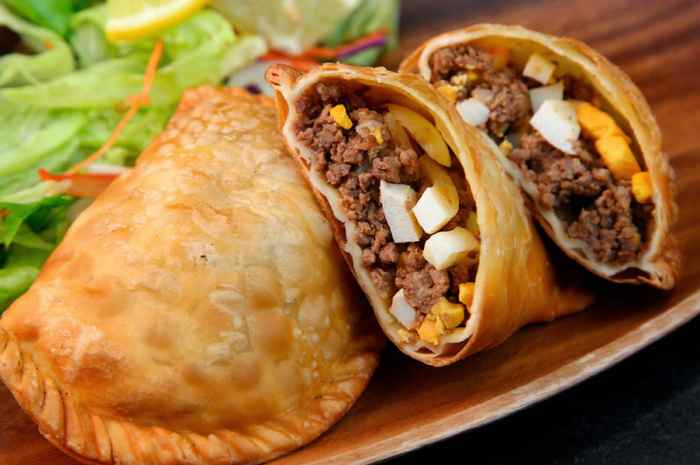
comidasparaguayas.com 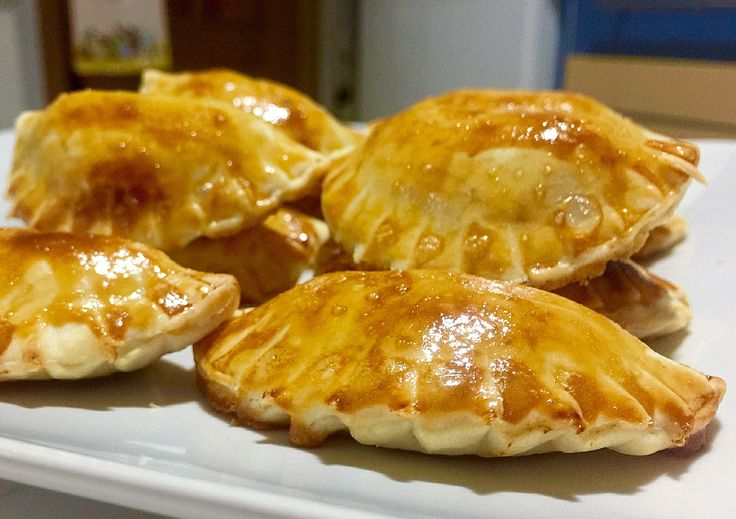
pinterest.com -
Paraguay is a bilingual country, with Guaraní as its second official language (the first one is Spanish). As a result, many popular dishes, such as Pastel Mandi'o and Yuca Empanada, have indigenous names.
Unlike traditional empanadas, which are made with wheat flour, Pastel Mandi'o uses cornstarch and yuca flour, which are higher in flavor and nutrients. Aside from that, the two types are prepared in the same way.
Pastel Mandi'o is an excellent example of how the oppressed appropriated the oppressor's culinary treasure. Paraguayans eat it for a variety of meals throughout the year. However, it is more popular during major holidays, such as Saint John's Eve in June. A lot of travelers highly recommended this dish as one of the Paraguayan must-try foods.
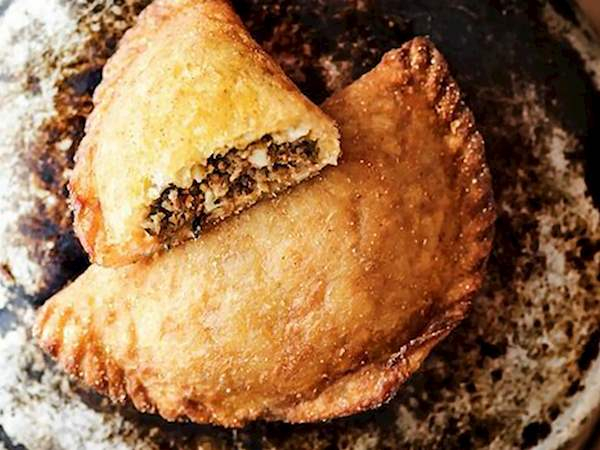
tasteatlas.com 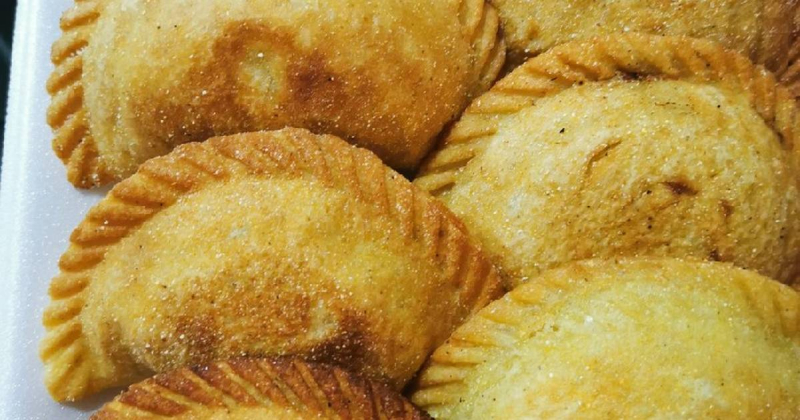
cookpad.com -
When people want to spread good food, even an ocean's distance isn't going to stop them. When Italian immigrants flocked to South America in the nineteenth century, they brought their famous Veal Milanese with them. The dish spawned a regional variation known as Milanesa.
Milanesa in Paraguay is made with thin slices of beef, pork, chicken, or even fish. They are coated in bread crumbs and fried in oil after being mixed with beaten eggs and spices. However, some people bake to reduce the amount of fat in their diet.
There are various types of Milanesa depending on the type of meat used. They should, however, all be served with tangy salads or crisp fried starchy foods like yuca or potatoes. Milanesa is a fantastic blend of European delicacy and local ingenuity.
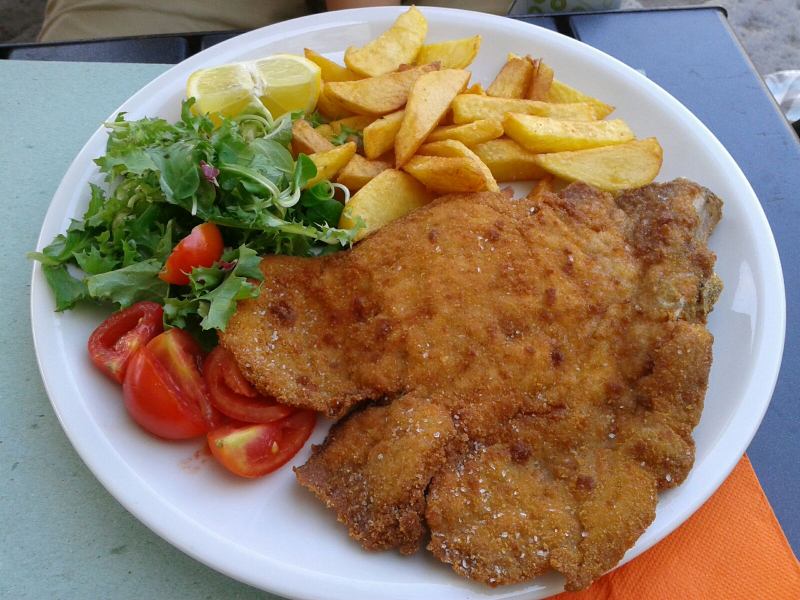
en.wikipedia.org 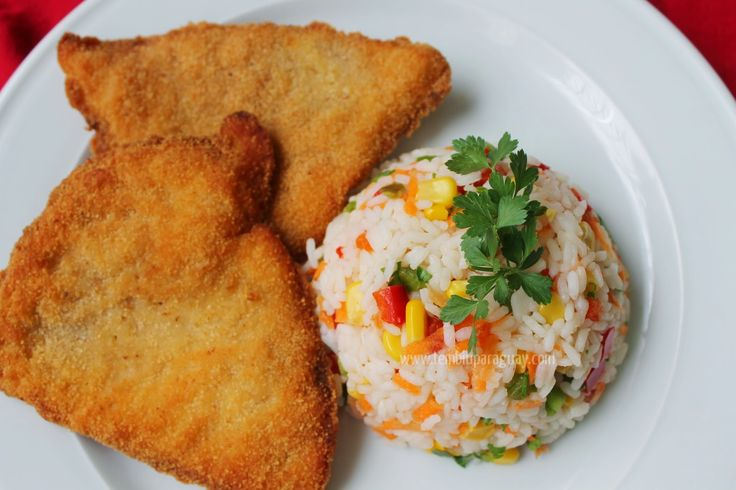
za.pinterest.com -
If you're looking for a delicious, easy-to-make Paraguayan dinner recipe, Ñoquis is the place to be. It is not a traditional dish of the country, but rather a contribution to South America from the Italian diaspora. Gnocchi is the name used in Spain for what is known as Gnocchi in the United States.
Gnocchi are dumplings made from a variety of doughs such as semolina, cornmeal, bread crumbs, and so on. In Latin America, however, Ñoquis are almost always made with mashed potatoes and cheese and drizzled with a rich sauce of olive oil, tomatoes, and spices.
It began as a foreign food and has since become the apple of many Latin Americans' eyes. On the 29th day of each month, many countries, including Paraguay, eat Ñoquis. Locals follow in the footsteps of Italian immigrants who survived on dumplings until the next month's paycheck.
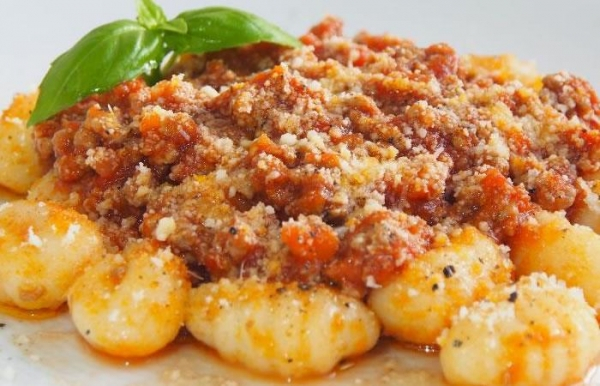
recetasparaguay.com 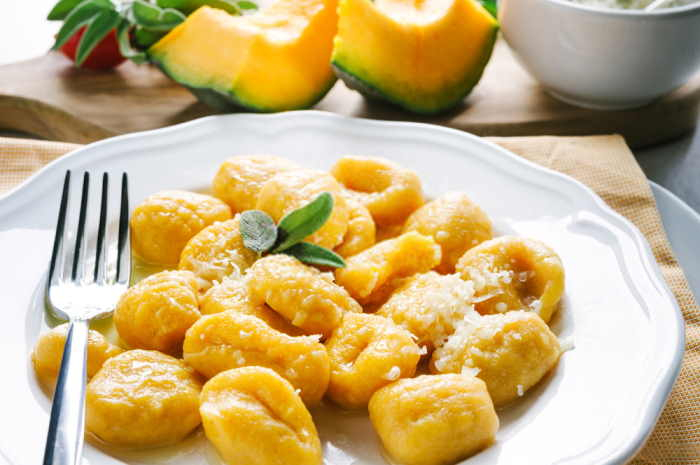
comidasparaguayas.com -
This dish is commonly referred to as Mexican meatball soup. Caldo de Albondigas, like many other Latin American dishes derived from Spanish cuisine, is popular in other countries throughout the region. The Paraguayan version will most certainly whet your appetite.
Caldo de Albondigas is made up of two parts: meatballs and broth. The former is made with minced pork, eggs, and rice, whereas the latter is made with tomato sauce, chopped vegetables, and spices. Cook both of them together thoroughly and serve with a spicy sauce.
Caldo de Albondigas journeyed from the Middle East to Spain and then to the New World. The strong flavor and aroma of this savory and nutritious dish provide a lot of culinary pleasure to the locals.
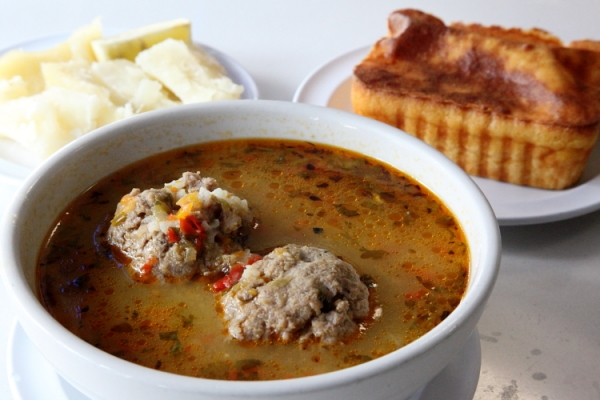
recetasparaguay.com 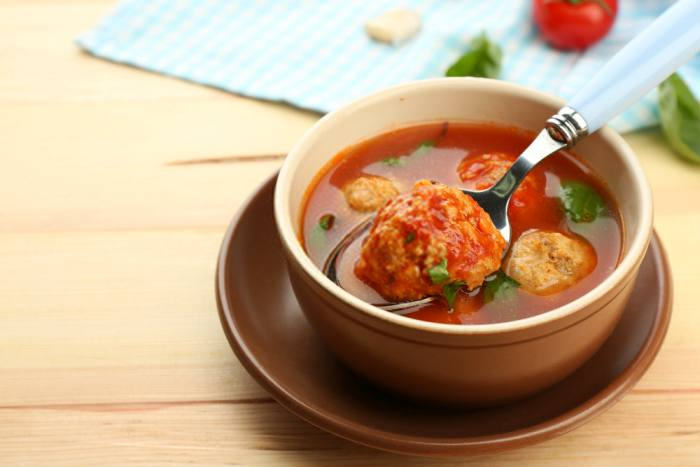
comidasparaguayas.com -
Some of the world's most beautiful rivers can be found in Paraguay. There are several explanations for the name "Paraguay," all of which involve water (from "born of water" to "river of the Payaguas"). With a lot of water comes a lot of fish and fish dishes.
Pira Caldo, or "fish broth" in Guaraní, is probably the most delicious. It's served with succulent, locally caught fish like mandi'y and surubi. Stir in the stew of tomatoes, onions, carrots, pork fat, and spices, and you've got yourself a smoking, mouth-watering pot of Pira Caldo.
Historians believe the dish was created in response to the scarcity of food during and after the devastating Paraguayan War in the late nineteenth century. In times of peace, Pira Caldo is the favorite comfort food of the entire country, if not the entire region.
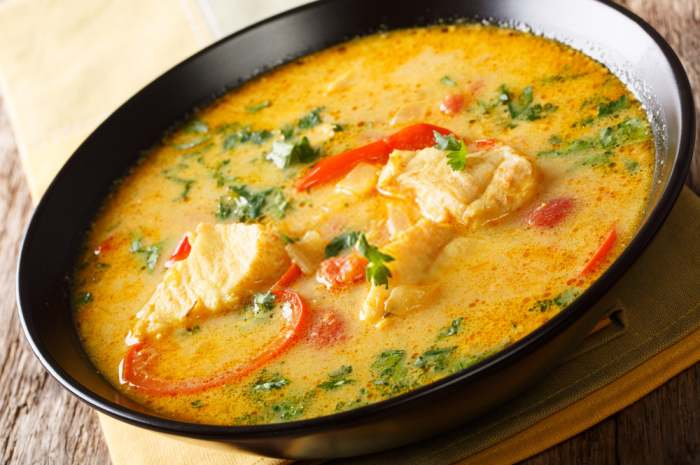
comidasparaguayas.com 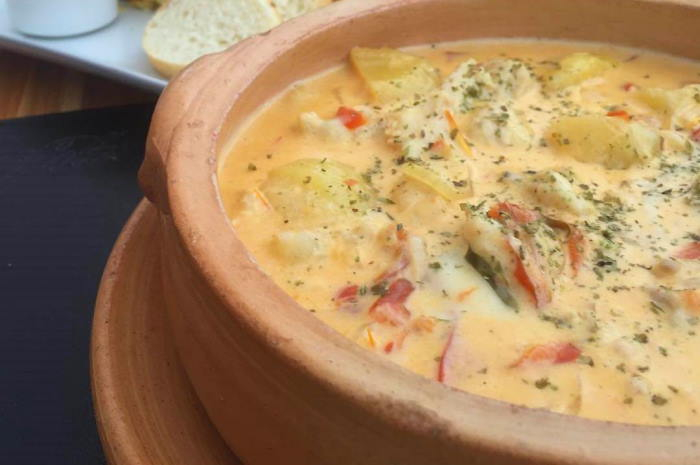
comidasparaguayas.com -
The indigenous Guaraní people were among the first to cultivate corn. As a result, they naturally developed or inspired many great Paraguayan corn recipes. Mazamorra, a sweet and simple dessert, is one of them.
It's a thick, pudding-like dish made of corn, sugar, water, milk, or honey. Mazamorra can be served either warm or cold. While only a dessert, it is so nutritious that many people relied on it as their main source of sustenance during the dreadful Paraguayan War.
I'll let you in on a little secret: Mazamorra is a generic term for a variety of traditional desserts from Spanish-speaking countries. Look for it by the Guaraní name: Kaguyjy to find the genuine Paraguayan one. Lots of travelers highly recommended this dish as one of the Paraguayan must-try foods.
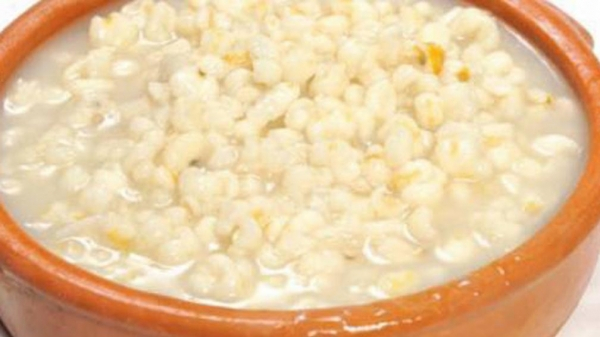
recetasparaguay.com 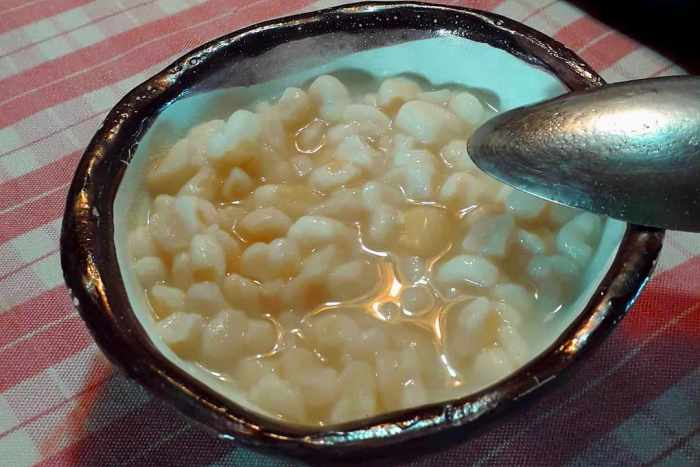
comidasparaguayas.com -
Orange is such a delicious fruit that even its skin should not be wasted. With Kosereva, Paraguayans demonstrate that truth. It is a sweet and sour dessert that may have been discovered by accident by Spanish conquistadors while attempting to preserve oranges with black molasses.
For family gatherings, Paraguayan grandparents would cook thinly sliced and boiled orange peel in black molasses and sugar. The process is time-consuming, but the end result is a gleaming, ebony, protein-rich, flavor-packed dessert.
Homemade Kosereva made with family love is unfortunately becoming increasingly rare, but you may be able to find it in stores or supermarkets. It is typically served on its own or with a piece of soft cheese.
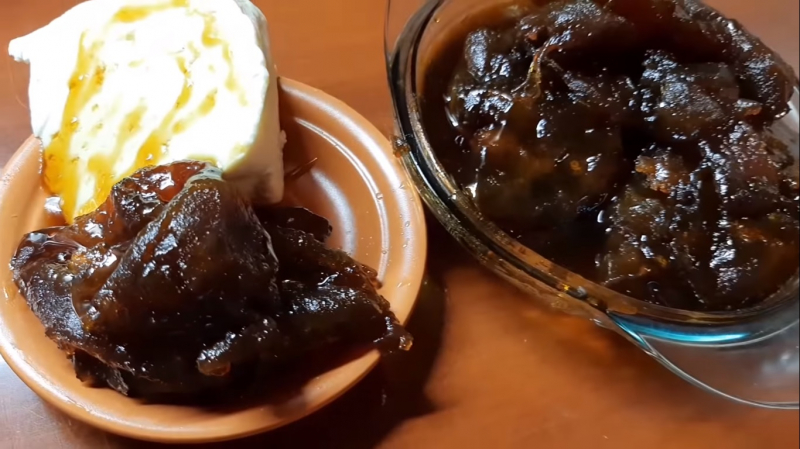
en.wikipedia.org 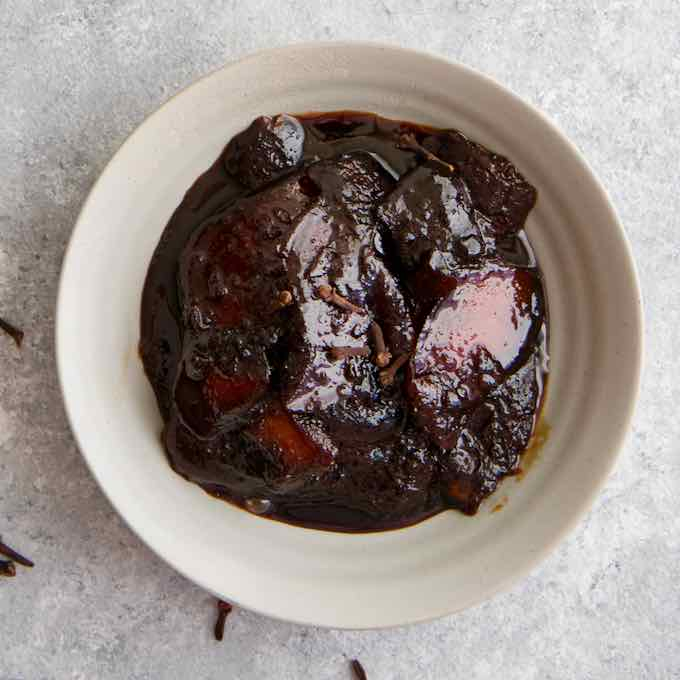
https://www.196flavors.com/ -
Leaving out Dulce de Mamón, the cream of Paraguayan desserts, is a terrible mistake (though it contains no cream at all). The papaya tree is a common sight in the country, providing delicious fruits for the locals to make this delicious dish.
While ripe papayas are extremely soft and sweet, Dulce de Mamón is made with green or half-ripe papayas. They cook chunks of green papaya in sugar syrup for hours over a low flame until tender before adding lemon juice and spices.
Another variation calls for the papayas to be seasoned with sugar before boiling. Whatever the case may be, the end result is always a fruity, syrupy-sweet dessert that melts on the tip of your tongue.
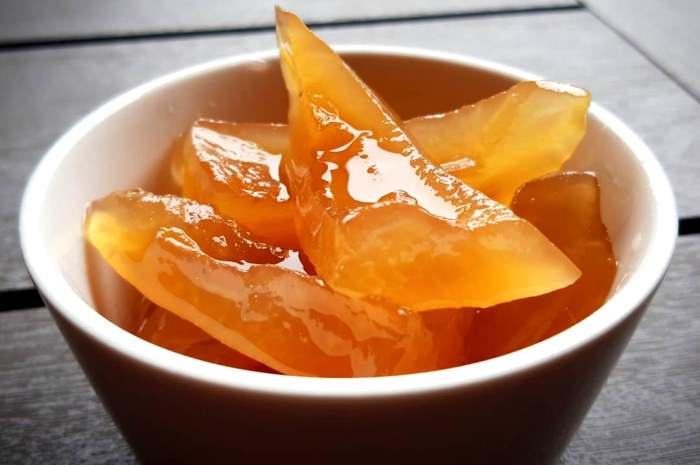
comidasparaguayas.com 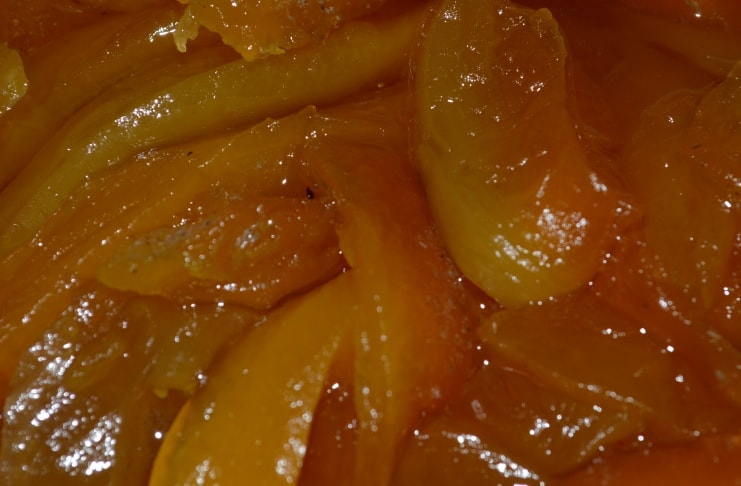
visitemosmisiones.com -
If you're looking for something to wash down your delicious Paraguayan food, try a cup of refreshing Tereré. The drink is so popular in Paraguay that the last Saturday of February is designated as "National Day of Tereré." It is also prevalent in other Latin American countries.
Tereré is a Guaraní beverage made from water, fruit juice (usually citrus), yerba mate (a native aromatic, caffeine-containing herb), and a few other medical herbs whose pronunciation may be difficult. The drink should be served with plenty of ice, making it ideal for hot weather.
Tereré should not be contained in just anything. Guampa, a container traditionally made of wood or animal horns, is the best vessel, though stainless steel containers are increasingly popular. Tereré is high in aromatic oil but low in calories, making it a nutritious and energizing drink.
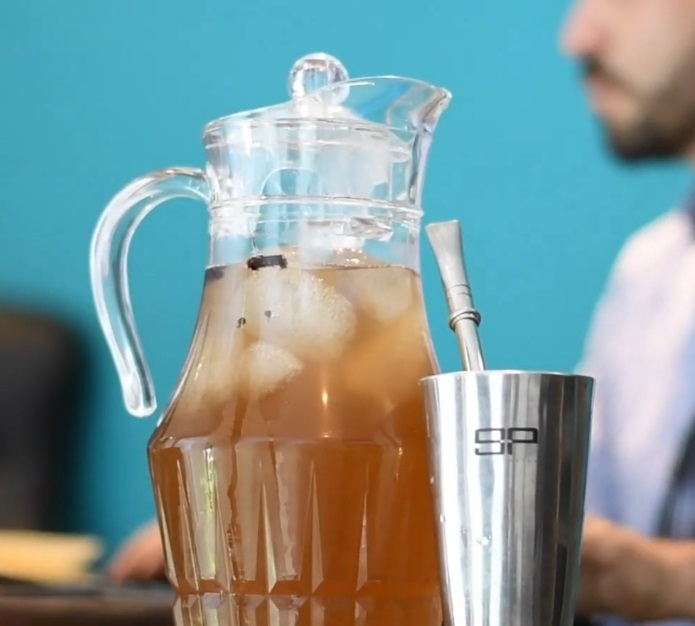
en.wikipedia.org 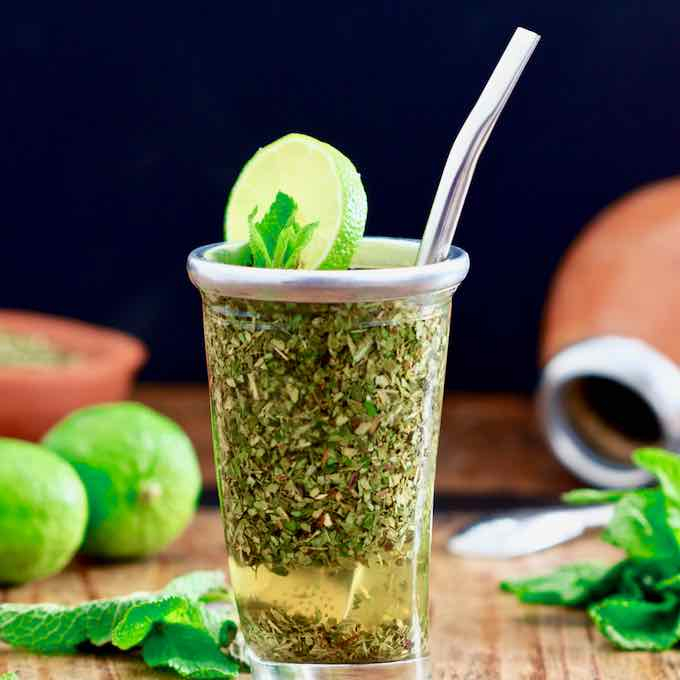
196flavors.com


















